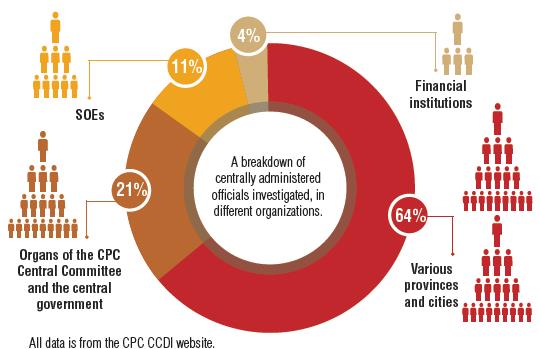Comprehensively strengthening party discipline
- By Lu Rucai
 0 Comment(s)
0 Comment(s) Print
Print E-mail China Today, September 13, 2017
E-mail China Today, September 13, 2017
Sharing experience
Fully strengthening Party discipline is a key component of President Xi's thoughts on state governance, and has polarized world attention. Song Tao, head of the International Department of the CPC Central Committee, observed that the leaders of many foreign political parties are eager to emulate the CPC's remarkable progress in strengthening its self-governance within a short time frame. He attributed these achievements to the Party's explorations and innovations over the past four years which embody its resolve and wisdom.
Song raised the example of the Party's top-down drive to eradicate formalism, bureaucratism, hedonism, and extravagance, which was launched by the Political Bureau of the CPC Central Committee. Meanwhile, the Party has escalated its efforts to root out corruption by cracking down on both "tigers" – senior officials, and "flies" – lowly bureaucrats. It has also promulgated a slew of Party regulations on members' participation in Party activities and intra-Party supervision and self-discipline.
To ensure their implementation, the Party has reformed its inspection practices, and established a system of checks and balances that combines intra-Party, democratic, public, and media supervision. Equal emphasis is placed on the education and guidance of Party members and officials in efforts to foster an ethical, highly principled political environment.
"In a globalized world, no country or political party can exist on its own. The fight against corruption calls for global efforts," Song Tao said. "China places great emphasis on and has actively promoted international anti-corruption cooperation under the frameworks of the UN, G20, APEC, and BRICS, as well as on bilateral levels with relevant countries. The CPC pays great attention to exchanges with other countries' political parties which provide the opportunity to compare notes on self-governance. It thus contributes its experience and proposals to the development of political parties worldwide and better global governance."
So far, China has joined 15 international and regional anti-corruption cooperative mechanisms. It works tirelessly towards implementing the United Nations Convention against Corruption, and has served as rotating president of the anti-graft arms of APEC and the G20. The country's efforts brought about the adoption by the 2014 APEC Ministerial Meeting of the Beijing Declaration on Fighting Corruption, and the 2016 G20 Summit's endorsement of the G20 High Level Principles on Cooperation on Persons Sought for Corruption and Asset Recovery and the 2017-2018 G20 Anti-Corruption Action Plan. Last year, China also established a research center on international cooperation regarding persons sought for corruption and asset recovery in G20 member states.
By November 2016, China had established anti-corruption cooperation partnerships with 89 countries and regions worldwide, and signed 48 extradition treaties and 59 agreements on mutual legal assistance in criminal matters.
Since the establishment in June 2014 of the Fugitive Repatriation and Asset Recovery Office of the Central Anti-Corruption Coordination Group, 3,051 suspects have been repatriated from 90-plus countries and regions; among them, 541 were CPC members and government workers. RMB 9.1 billion worth of ill-gotten gains have also been recovered.







Go to Forum >>0 Comment(s)